Zlatko Dalić Announces Wider 2022 World Cup Croatia Player List
October 31, 2022 - Croatia national team coach Zlatko Dalić announced a wider list of players for the 2022 World Cup in Qatar.
On Wednesday, November 9, Dalić will announce the final list of candidates for the World Cup, which includes between 23 and 26 players. The Croatian Football Federation must submit the definitive list of players to FIFA on November 14. After that, it is possible to change players up to 24 hours before the first match in case of injury, reports HNS.
There are 34 names on Dalić's wider list of candidates, one less than expected after Lovre Kalinić was injured in the match between Lokomotiva and Hajduk on Sunday. Today's MRI showed that Kalinić would not go to Qatar.
"We are extremely sorry about Lovre, and we wish him a speedy and high-quality recovery. However, this unfortunate event confirms that, at this moment, the most important thing is the players' health. Therefore, we can only wish we have no more news related to injuries until we get together," said coach Dalić.
"There are 34 players on this extended list, so we have enough options in case of unforeseen situations. I am happy that most players are in good shape and that most have good playing time. I believe that everyone will make the most of the next two weeks to be in optimal condition for the gathering that we are all extremely looking forward to," said Dalić.
The Croatia national team will gather on November 13 and 14 in Zagreb before traveling to Riyadh on November 14 for a friendly match against Saudi Arabia scheduled for November 16. Two days later, the national team travels to its base camp in Qatar, where the FIFA World Cup begins on November 20. The 2018 World Cup finalists start their journey on November 23 against Morocco, followed by Canada (November 27) and Belgium (December 1).
Player list
Goalkeepers: Dominik Livaković, Ivica Ivušić, Ivo Grbić, Dominik Kotarski, Nediljko Labrović
Defenders: Domagoj Vida, Dejan Lovren, Borna Barišić, Duje Ćaleta-Car, Josip Juranović, Joško Gvardiol, Borna Sosa, Josip Stanišić, Marin Pongračić, Martin Erlić, Josip Šutalo
Midfielders: Luka Modrić, Mateo Kovačić, Marcelo Brozović, Mario Pašalić, Nikola Vlašić, Luka Ivanušec, Lovro Majer, Kristijan Jakić, Luka Sučić, Josip Mišić
Strikers: Ivan Perišić, Andrej Kramarić, Josip Brekalo, Bruno Petković, Mislav Oršić, Ante Budimir, Marko Livaja, Antonio Mirko Čolak
To follow the latest sports news in Croatia, follow TCN's dedicated page.
The Croatian Language Explored - The Čakavian Dialect
October the 31st, 2022 - We've delved into the histories and words of old Dalmatian, the Dubrovnik subdialect, the Zagreb dialect, and we've also explored swearing in the Croatian language. Now let's take a look at another of the main dialects, Čakavian.
Čakavian is one of the three main dialects from which standard Croatian language as we now know it is made up, along with Štokavian and Kajkavian, which we've looked into in two of the aforementioned articles. The Čakavian dialect isn't as obscure as many of the dialects spoken across this country, and it stands out from the crowd because it is deemed to have been the basis of the stylisation of the first publicly used standard Croatian language.
Opinions on just how this particular dialect of the Croatian language which is fairly widely spoken vary, so we'll have a quick dive into both the majority and the minority opinions. According to the dominant opinion held by some linguists, during Ottoman encroachment and invasion, there was a push of spoken dialects out towards the west, and those who spoke the Štokavian dialect fled to areas in which Čakavian was primarily spoken. This consisted of bits of the Dalmatian coast and most of the Dalmatian hinterland, as well as parts of Gorski Kotar and Lika, and on most of the islands north of the Peljesac Peninsula. It also included most of Istria and then inland, all the way to Karlovac.
According to the minority opinion, Čakavian developed from the Old Slavic language spoken by certain coastal Croats as a result of linguistic mixing of that language with the remnants of Romanised people who also influenced the language then spoken by the Croats, which caused the emergence of this dialect of the standard Croatian language. Supporters of this opinion also support the fact that there aren't really any collective Čakavian speakers located in the interior of the country except in very specific areas.
Dutch accentologist and linguist Willem Vermeer divided the Čakavian dialect, or in this case language, into three groups: Northwest, Central and Southeast Čakavian.
Glancing outside of the borders of modern Croatia, most Čakavian dialects are spoken in nearby Austria, followed by Slovakia and Hungary where the number of people who speak with this dialect is less. There is a lot more one could say about this history of this dialect of the Croatian language, with different experts having their own classifications and divisions. Vermeer was just one of them, with Iva Lukezic, another expert, having her own division of this way of speaking which is quite different to that of Vermeer as recently as 2012.
Instead of doing a deep dive into that, let's take a look at some Čakavian words with their standard Croatian and English translations. If you happen to have read any of the above-linked articles or know some old Dalmatian, Štokavian or Kajkavian, you'll more than likely recognise several:
Angurija - lubenica/water melon
Banjati se - to bathe or swim/kupati se
Ceno - jeftino/cheap
Delat - raditi/work
Farmacija - ljekarna/pharmacy
Gad - neotrovnica (zmija)/non-venomous snake
Harta - papir/paper
Infishan - zaljubljen/in love
Jadrit - jedriti/sail
Kalmat se - smiriti se/to calm down
Lesica - lisica/fox
Merlin - mrkva/carrot
Navada - navika ili obicaj/a habit or a custom
Oganj - vatra/fire
Pamidor - rajcica/tomato
Razjadit se - naljutiti se/to get angry
Sakamo - svugdje/everywhere
Tancat - plesati/to dance
Ulika - maslina/olive
Vakit - vikati/to shout
Vlasi - kosa/hair
Zrcalo - ogledalo/mirror
For more on the Croatian language, from swearing and extinct words to the histories and examples of different dialects, make sure to keep up with our dedicated lifestyle section.
SuperSport HNL Round 15: Osijek Gives Dinamo First Defeat, Hajduk Misses Out on 3 Points
October 31, 2022 - The SuperSport HNL 15th round was played from October 28 to October 31, 2022. This round featured the derby between Osijek and Dinamo at City Garden Stadium, with Dinamo recording its first defeat of the season, while Hajduk missed out on taking 3 points against Lokomotiva with a last-minute 2:2 draw. Here's our SuperSport HNL round 15 recap.
Sibenik v. Varazdin (1:2)
Sibenik and Varazdin opened the 15th round on Friday, October 28, in Sibenik.
The first half went without goals, but the second half certainly made up for it. Dolcek scored for 1:0 Sibenik in the 60th minute, just five minutes before Varazdin's Teklic was sent off with a red card. Varazdin played with a man down for the rest of the match, but Brodic brought hope with the equalizer in the 71st minute (penalty). A red card was shown to Sibenik, too, in the 3rd minute of stoppage time when Delic was booked for his second yellow. Pilj scored the winning goal a minute later for the final 1:2 Varazdin.
Sibenik is currently in 8th place with 13 points, while Varazdin is in 5th place with 22 points.
Rijeka v. Istra 1961 (0:1)
Rijeka and Istra met on Saturday, October 29, at Rujevica Stadium in front of 3,755 fans.
Another scoreless first half was shaken up in the 63rd minute when Erceg put Istra ahead for 0:1. Neither team could score for the remainder of the match. Rijeka held 48% of the ball possession throughout the game compared to Istra's 52%. Istra had three shots on target and five blocked shots by the Rijeka keeper.
Rijeka is currently in 9th place with 12 points, while Istra is in 6th with 17 and a game in hand.
Osijek v. Dinamo (1:0)
Osijek and Dinamo met on Saturday, October 29, at City Garden Stadium in front of 7,609 fans. This is one of the last games that will be played at this stadium as we await the new Pampas stadium due to open soon.
It was another scoreless first half in the 15th round and a second half that was incredibly difficult to play due to the thick fog. Mierez found the back of the net in the 85th minute for the Osijek win and Dinamo's first loss this season.
Osijek is currently in 3rd place with 27 points, while Dinamo is in first with 35 and a game in hand.
Lokomotiva v. Hajduk (2:2)
Lokomotiva and Hajduk met on Sunday, Octoberr 30 in Zagreb.
Another 0:0 game at halftime was certainly compensated for in the second half. Sahiti found the back of the net in the 61st minute, and Mlakar just six minutes after that for a comfortable 0:2 Hajduk lead. Unfortunately, a tough-to-watch injury for Hajduk keeper Lovre Kalinic saw the end to his game in the 85th minute and time off the pitch for the unforeseeable future. Croatia coach Zlatko Dalić announced today that he would be missing the World Cup.
Lokomotiva then came out to play. A goal by Ibrahim made it 1:2 in the 88th minute and a Tuci equalizer in the 5th minute of stoppage time saw the game end in a draw. Hajduk thus missed out on coming 2 points behind Dinamo. Hajduk was without its ace Marko Livaja in this match due to cards.
Lokomotiva is currently in 7th place with 14 points, while Hajduk is in 2nd with 31.
Gorica v. Slaven Belupo (1:1)
Gorica and Belupo closed out the 15th round on Monday, October 31, in Velika Gorica.
Zirdum scored an early goal for Belupo in the 9th minute for 0:1. Kocijan received his second yellow in the 21st minute, forcing Belupo to play with a man down for the remainder of the match. Vujnovic equalized in the 3rd minute of stoppage time for 1:1 at the half, but Gorica could not capitalize on having a man up and failed to find the back of the net. The match ended 1:1.
Gorica is currently in the last place with 7 points, while Belupo is in 4th with 24.
You can see the HNL table HERE.
To follow the latest sports news in Croatia, follow TCN's dedicated page.
Award-Winning Croatian Film and TV Director Lukas Nola Dies
October 29, 2022 - The news of the passing of the renowned Croatian TV and movie director Lukas Nola shook Croatia today.
Lukas Nola, 59, passed away today in Zagreb, after a long battle with cancer, Croatian media reports.
His debut was in 1993, when he made a made-for-TV movie "When Nobody is Watching". His subsequent movies, "Every Time We Part" (1994) and "Russian Meat" (1995) were hits, winning awards at the Pula Festival and getting turned into popular TV series. He combined the genres of thriller, melodrama and detective story, was preoccupied with his original characters and was heavily influenced by David Lynch.
Then he turned towards art-movies, using a more modernist approach in his movies "Celestial Body" and "Alone" from the early 2000s, which also managed to win awards at the Pula festival. Those latter movies are influenced by Tarkovsky, and prove his exquisite visual style. His TV titles include "Operation Kajman" and "Guardian of the Castle" (which was a hit on the international scene and was even shown in the USA). He was also a play-writer, did some theatre directing and made numerous experimental films. He wrote the screenplays for all of his movies himself.
His wife is the renowned Croatian actress Barbara Nola, and their two children have also found themselves in various art undertakings.
Numerous Croatian actors, directors and other celebrities mourning the loss took to social media to say their last goodbyes to their friend and colleague today, including Goran Grgić, Dalibor Matanić, and many others.
Roadmap to Cholesterol: Croatia Among First to Implement New Global Project
October 29, 2022 - Croatia is very successful in the treatment of cardiovascular diseases but urgently needs to improve prevention - we are among the first to start implementing the new global Roadmap for Cholesterol, which was just presented in Zagreb, as well as other projects to improve the nation's cardiovascular health.
Although Croatians have the highest obesity rate amongst the citizens of the EU and insufficiently recognize and treat other key cardiovascular risk factors, Croatia went from the group of so-called very high-risk countries to the group of countries with a high risk of cardiovascular diseases. This is confirmation of the good practice of domestic experts in cardiovascular health, but the key next step is the National Plan for the Suppression of Cardiovascular Diseases with the aim of transforming into a group of countries with low cardiovascular risk – the most developed countries in Europe and the world.
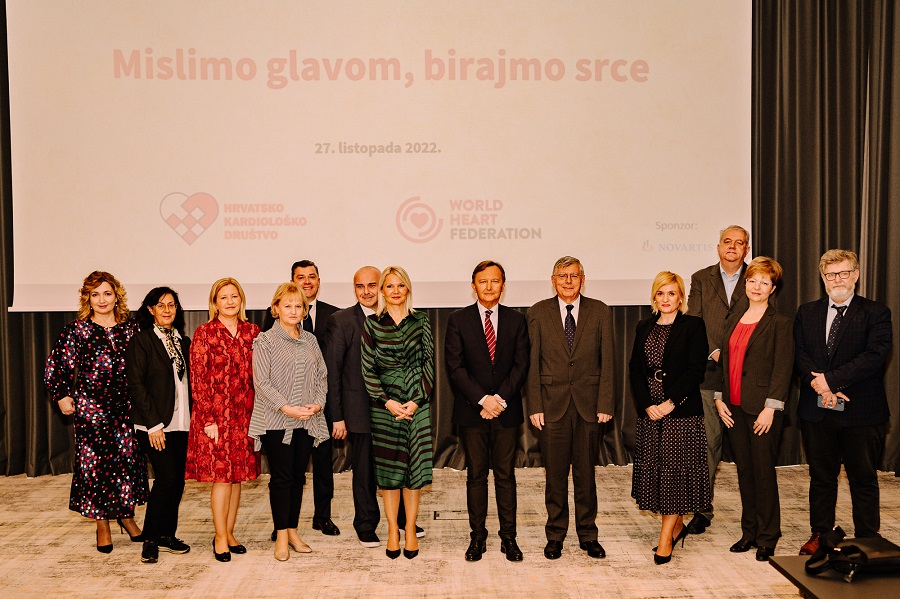
The symposium named Use your brain chose your heart, organized by the World Heart Federation and the Croatian Cardiac Society in Zagreb and under the chairmanship of academician Davor Miličić, brought together the leading domestic experts in cardiovascular health. Just after the world premiere, got acquainted with the new Roadmap for Cholesterol 2022. It is a comprehensive document aimed at improving health outcomes and survival in patients with increased cardiovascular risk, with an emphasis on the importance of comprehensive prevention, early and high-quality diagnostics, and screening of risk groups from an early age. It was presented by the president of the European Society for Atherosclerosis and one of the world's leading authorities on cardiovascular diseases, prof. Kausik Ray. As the host of the symposium, academician Davor Miličić asserted that with more than 22,000 deaths from cardiovascular diseases per year, Croatia is among the countries with higher mortality rates than the EU average and is classified as one of the countries with a high cardiovascular risk in Europe. In Croatia, there is already a consensus on the need for the urgent adoption of the National Plan for the Suppression of Cardiovascular Diseases, which has the support of the Ministry of Health. Academician Miličić also pointed out that cardiology is a very successful field of Croatian medicine, within which a number of new diagnostic and therapeutic achievements have been introduced into routine practice, such as the primary network of interventional treatment in acute coronary syndrome and other most complex interventional procedures in diseases of the heart, aorta and peripheral vessels. Great progress was also made in arithmology and electrostimulation, and of course, in heart transplantation and the use of mechanical circulation pumps, which is why Croatian cardiology is internationally recognized and acknowledged. Therefore, our cardiology patients, even the most difficult ones, can receive high-quality and comprehensive cardiology care in Croatia.
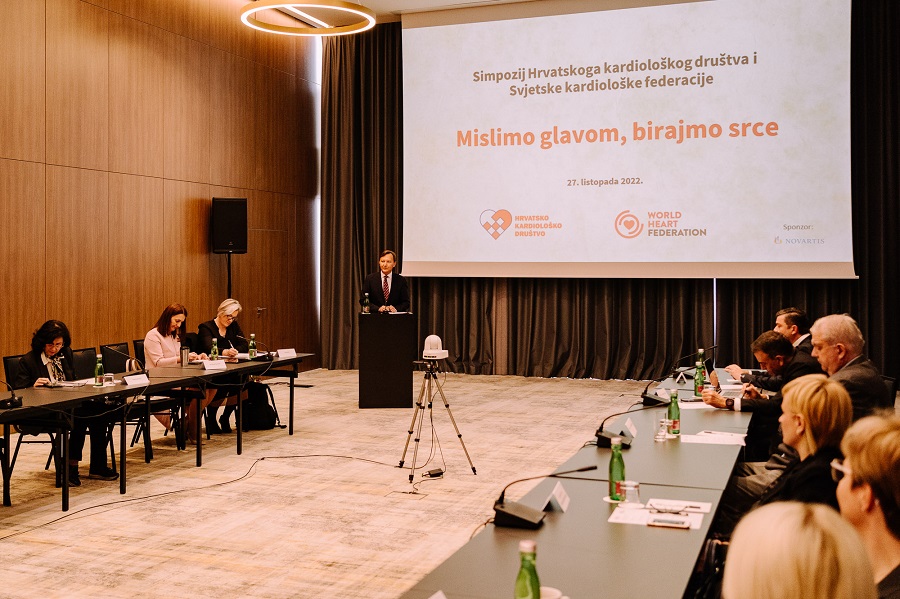
"In order to bring Croatia closer to countries with the lower mortality rates from cardiovascular diseases, it is necessary to simultaneously work on six key challenges – comprehensive primary prevention targeted active and systematic detection of high-risk patients who do not yet have an established diagnosis, such as those with familial hyperlipoproteinemia, reduction of obesity and cardiometabolic risk, public health campaigns, the introduction of new therapies in accordance with the guidelines of the European Society of Cardiology and, of course, the consistent and steady implementation of a comprehensive National Plan for the suppression of cardiovascular diseases" concluded academician Miličić.
Academician Miličić also pointed out screening for familial hyperlipoproteinemia among preschool children as one of the future major public health projects, whereby Croatia would be one of the first countries with this type of screening that exposes children with an extremely high cardiovascular risk, but also their parents and siblings. This enables the start of effective treatment and prevents cardiovascular disease and mortality, which without treatment can be expected in adolescence or young adulthood. Academician Željko Reiner reminded it is a congenital disease where patients have a lifelong high value of LDL cholesterol, which needs to be effectively and permanently controlled.
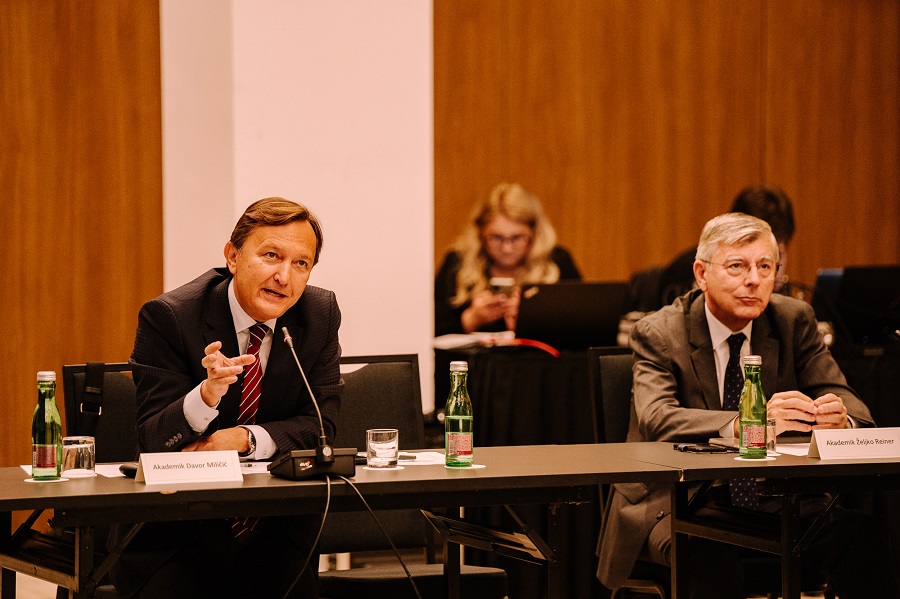
"It is estimated that about 20,000 people in Croatia suffer from such a hereditary form of high cholesterol, of which only one percent has been recognized. Due to long-term imperceptible exposure to high values of bad LDL-cholesterol, these people have a 20 times higher risk of developing cardiovascular diseases than the rest of the population. In this procedure, after identifying a child with familial hypercholesterolemia, the cooperation of a family medicine doctor, but also of the whole family, which would be covered by screening and the possibility of effective, timely treatment, is needed," added academician Reiner, president of the Croatian Society for Atherosclerosis.
The Ministry of Health strongly supports the proposals and conclusions of the Symposium, pointed out the representative of the Ministry, Dr. Ivana Portolan Pajić. "The upcoming healthcare reform is making a big turn towards primary prevention, early disease detection, and the implementation of screening for familial hypercholesterolemia in preschool children, which will begin in 2023," she concluded.
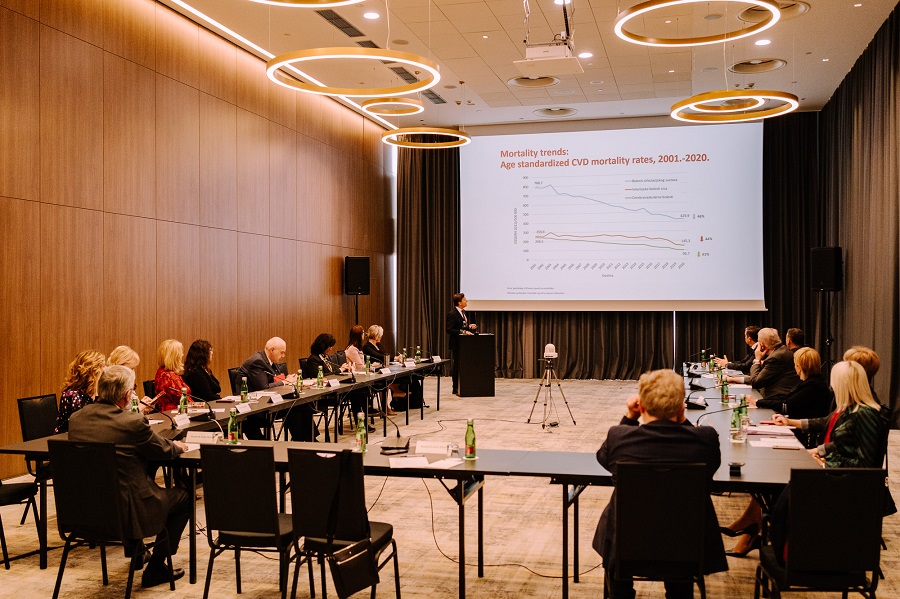
Academician Bojan Jelaković, president of the Croatian Society for Hypertension, reminded me of the importance of reduced salt intake. "In the last 12 years, we have recorded a significant decrease in salt intake, both among citizens and through cooperation with the food industry, as well as a decrease in blood pressure values. But we still have to work systematically to highlight the danger that excessive salt consumption poses to human health," added academician Jelaković. With this Symposium, Croatia hosted the World Heart Federation for the first time, which is the representative of the global cardiovascular community, and gathers more than 200 member organizations in more than hundreds of countries.
Croatian Returnee Stories: Denis Vlahovac, from Vancouver CA to Daruvar
October 29, 2022 - Whisper it quietly, but more and more people are relocating to Croatia from the diaspora. In a new TCN series, we meet them to find out how they are faring and what advice they have for others thinking of making the switch. Next up is Denis Vlahovac, who moved from Vancouver CA to Daruvar.
My name is Denis Vlahovac, and I am a bar consultant and cocktail event manager. I own a company called Cocktail Empire that focuses on improving hospitality standards in Croatia through education and events. I promote the usage of locally grown products, connecting local producers with cafes and restaurants, and I am trying to implement new creative ways to use existing products in cocktails while lowering costs and making the business sustainable. I grew up in Daruvar, Croatia. After I finished University in Opatija in 2014, I moved to New York, and I lived abroad until the pandemic started in 2020. I visited 61 countries and lived in 5 countries.
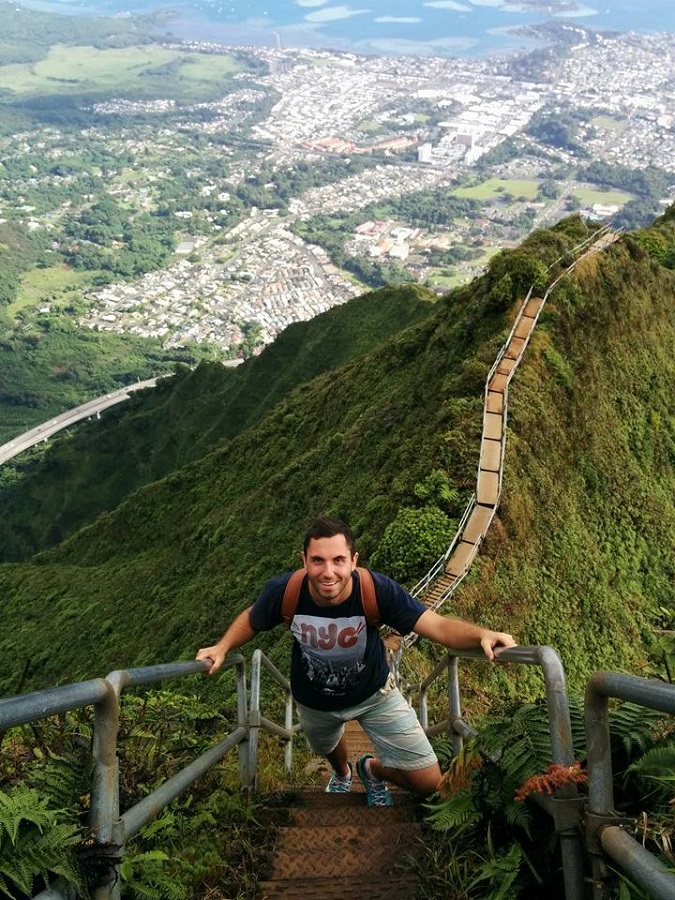
1. You made the switch to Croatia. Tell us a little about the decision process and how long it took for you to get on the plane.
Ever since I moved out of the country 8 years ago, I thought about what it would be like to actually go back to Croatia and work there. Did something change? Money was not the main reason I left (even though it was an important factor), but actually, the situation itself was with my university diploma, I actually had to know people to get a good job. Your skills didn’t matter much. When I moved out, I actually saw that if I worked hard, I could go places. And I worked hard and learned along the way. The decision to come back home was pretty much straightforward. I was forced to return to Croatia because of the pandemic. My Canadian visa expired, and I was unable to renew it. I barely managed to leave the country because I was on vacation in Alaska when it was decided that the border between Canada and the US was about to close the following day, so I rushed to the airport to return to Canada before it happened. The restaurant I worked at closed permanently the same week, so there was no other option but to go back to Croatia for, what I thought at that moment would be, six months.
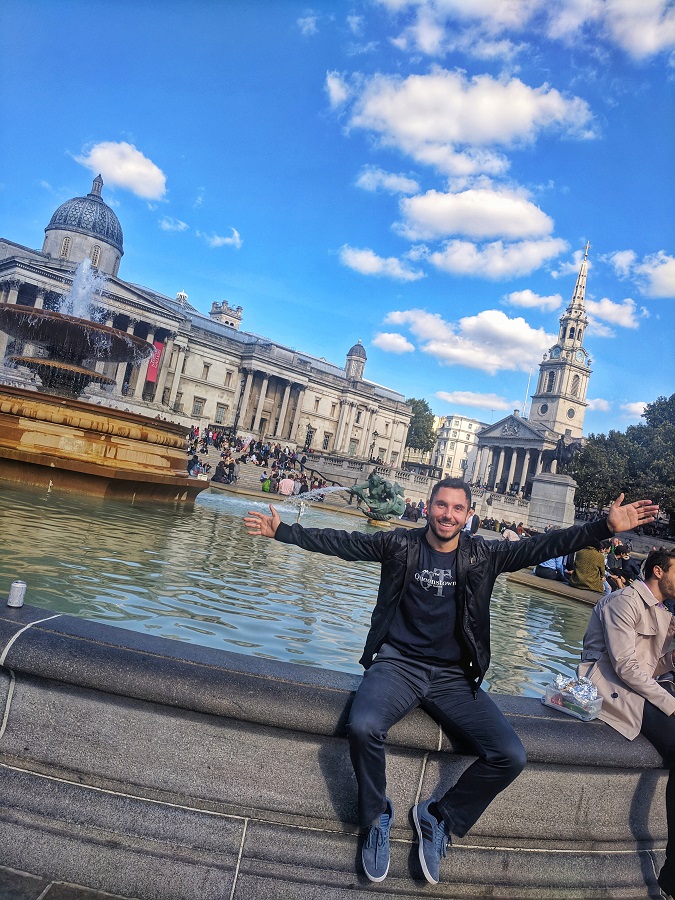
2. What did your family and community back home think of your decision at the time?
My family always wanted me to come back and to be closer to them, even though they supported me in my travels. They were always here for me when I needed them. I haven’t seen my parents or my friends back in Croatia for 2 or 3 years sometimes. When it was time to come back, neither they nor I knew it was going to be for good. And we all thought the pandemic was going to end in a couple of months and everything would be back to normal. The day of the flight, I had 2 flight cancellations and barely managed to get out of Vancouver to Montreal and from there to Brussels, only to realize that there was a huge earthquake in Zagreb that same morning. We managed to get there the same day, and my parents left a car for me at the airport, and I drove back home to Daruvar to self-isolate for 2 weeks.
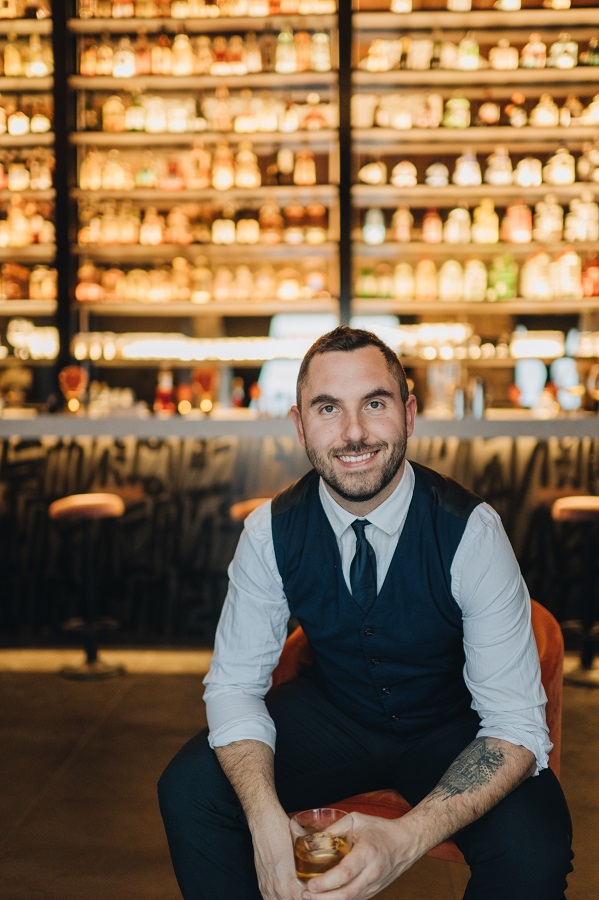
3. Where did you get your information about the realities of Croatia prior to coming?
I was reading Croatian media wherever I lived in the world. Most of the time, I was grateful I didn’t live there. But when you start reading the news about the country you live in, you realize that the news is the same everywhere. In Croatia, there’s a problem in the past with previous regimes but so is in Canada or New Zealand.
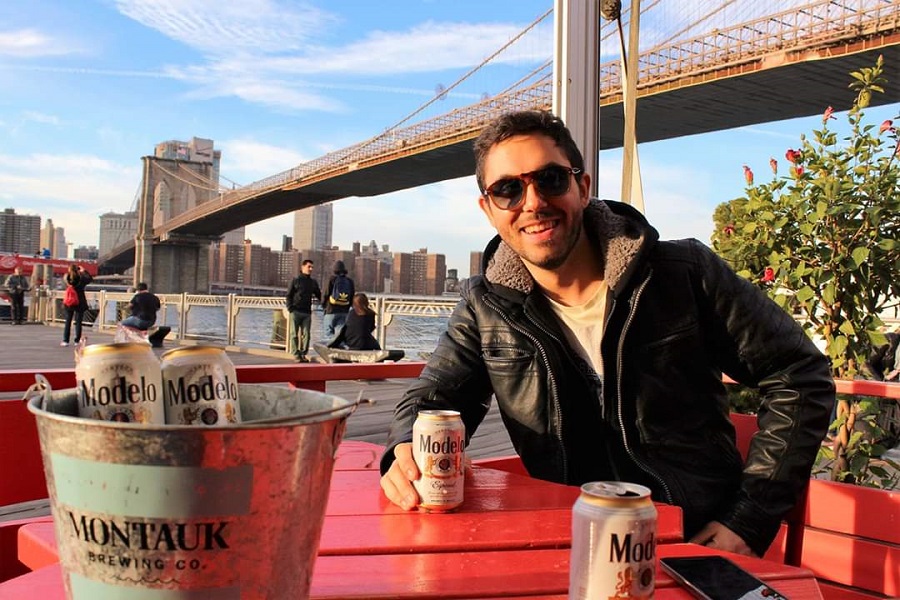
4. What were you most nervous about making the switch? What was your biggest fear, and what was the reality of what you found?
It was hard for me to think about Croatia when I made all the other places my home. I lived in New York for 3 years, and the hardest decision I made in my life was to leave New York. I had lots of friends and a great job. But I needed a change. I wanted to travel the world. At that time, I never imagined myself living back in Croatia. But things change, and people change. Now when I am in my thirties, I can see Croatia as a wonderful place to live in. And I try to hang out with people who think alike and really want to work on making this place even better.

5. Think back to the time before you arrived. What were your perceptions about Croatia, and how were they different from the reality you encountered?
I knew what Croatia was like in 2014, and I didn’t want to live there at that time. The people were great, but the situation was hard. I do not come from a wealthy family, nor do I live on the seaside where opportunities to get better-paying jobs are abundant. But after 6 years abroad, I started to think about Croatia more. I wondered if the situation has changed. After 6 months of being in Croatia in 2020. I realized that covid was not going to go away quickly, so I started looking for a job as a bartender. I thought salaries must be much higher now than they were in 2014. After a few job interviews, I was left speechless. The sheer disappointment I felt at that moment as I was walking away from a cocktail bar in Zagreb I just had an interview made me think about moving away again. But this time, it was impossible for me to leave. All my savings were melting away fast, and I had to think hard about what I wanted to do with my life. I saw the opportunity to start my own business and apply all the things I learned abroad to the Croatian hospitality scene in order to improve it. I decided to stay in Croatia for good this time.

6. You are still here, so obviously, the pros outweigh the cons. Tell us about some of the things that you love about being in Croatia, as well as some of the things you don't like.
What I love about Croatia is that it is really beautiful, people are easy-going, and it’s easy to make new friends there is a big potential for business growth, especially if you have something unique to offer to the market. Every part of Croatia has something unique to offer in regard to food and sights. It’s awesome to go to places like Baranja and Istria, Zagorje, and Dalmatia and experience great food and meet friendly people. I like the way of life here and being close to my family and friends. I do feel it is getting more and more westernized with a fast lifestyle and the constant run for the money, but it still has some of that chill vibe. Especially in smaller towns. What I don’t like is that it is a relatively small market, so unless you have something original or are extremely good at what you do, you will have a hard time succeeding. Another thing I find interesting is that Croatians always think of themselves as really hard-working, but I don’t see that in Croatia that much. Of course, there are hard-working people here, but not in the amount we like to tell ourselves. Bureaucracy is a constant problem, but it is getting better. The thing I feel is the most annoying in Croatia is that you need to know people to get good jobs and that people think and talk about other people's lives too much. Related to my love of traveling, what I hate in Croatia is the lack of railroad infrastructure and the lack of long-haul flights from Croatian airports. Especially in the winter.
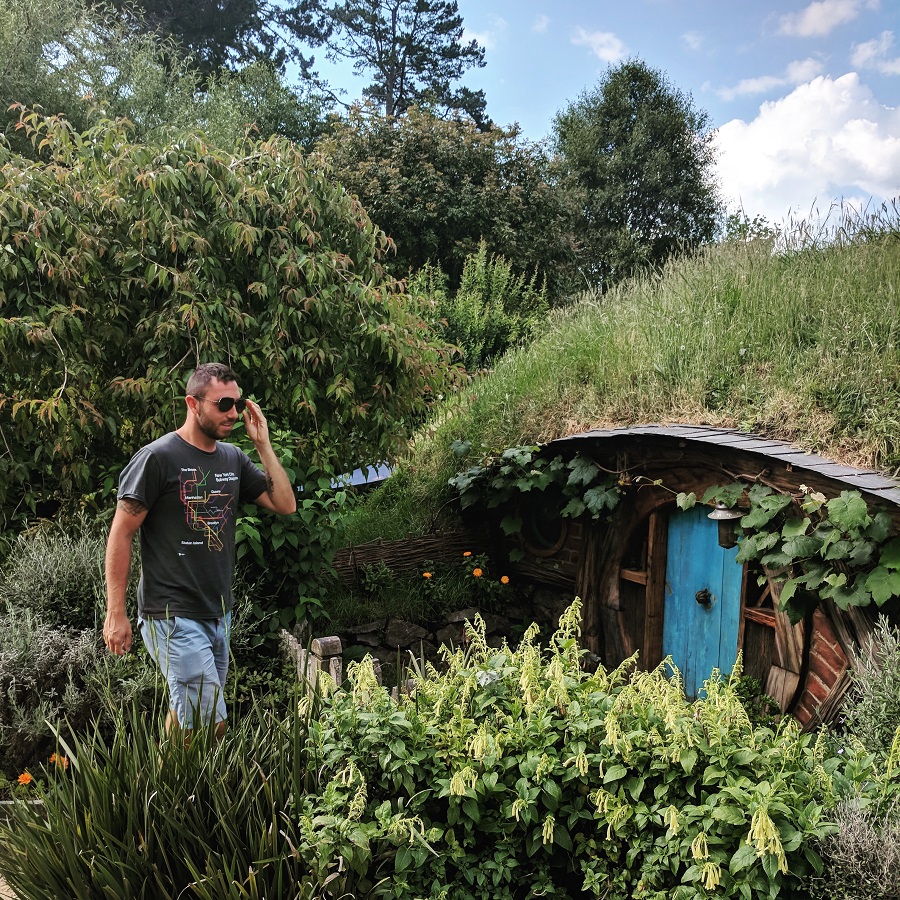
7. What advice do you have for others thinking about making a move from the diaspora?
If you need a relaxed lifestyle and are thinking about moving to a slower-paced country that has great food, good people, and a high potential for business growth, Croatia is an excellent choice. Especially if you are a high earner, you will find that Croatia has everything you need. You can go hiking, play different sports, enjoy the sun and visit 1000 islands, drink the finest wine, eat quality local food and hang out with friendly people. It is extremely safe and well-connected with the rest of Europe.

8. How do you think Croatia can better assist those who are looking to return to the Homeland?
I think the Croatian government missed the opportunity to keep Croatians that returned to Croatia during the pandemic in the country. Now it is hard for them to come back. I am one of the rare ones who decided to stay and build my life here. I think we should work on “stopping” the people from leaving Croatia permanently in the first place. It’s great for people to go abroad to study there or to get some work experience, and we should offer those people some benefits to come back to Croatia to use that knowledge to improve the local economy. Corruption is, unfortunately, still a big problem in Croatia, and we should all work together to get rid of it as much as possible. That is probably the main reason Croatians are leaving Croatia.
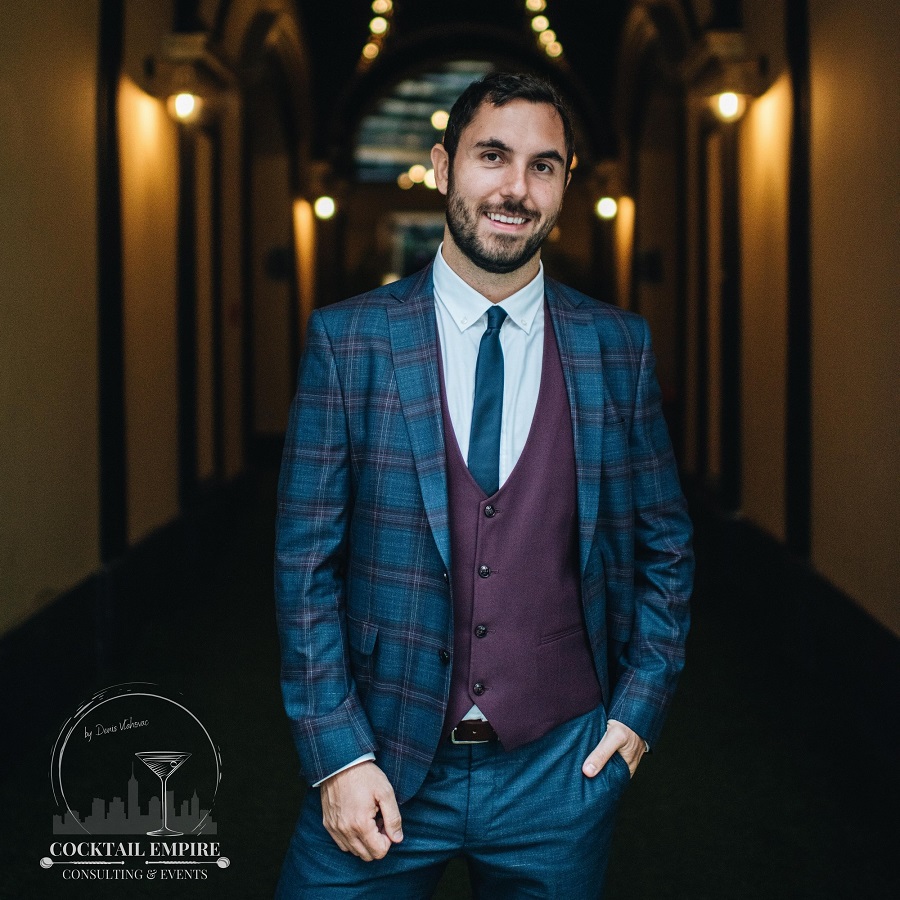
****
Thanks, Denis, and good luck with www.cocktailempire.hr
https://www.facebook.com/cocktailempireDV
https://www.instagram.com/cocktail.empire
https://www.instagram.com/denis.vlahovac
****
You can follow the TCN Croatian Returnees series here.
****
What is it like to live in Croatia? An expat for 20 years, you can follow my series, 20 Ways Croatia Changed Me in 20 Years, starting at the beginning - Business and Dalmatia.
Follow Paul Bradbury on LinkedIn.
Croatia, a Survival Kit for Foreigners is now available on Amazon in paperback and on Kindle.

Podravka Group Maintains Growth, Sales Revenue Increases
October the 29th, 2022 - The Podravka Group has managed to hold onto its growth despite the negative economic circumstances and inflationary pressures we're currently experiencing. It even secured sales growth of 10 percent.
As Poslovni Dnevnik writes, during the first nine months of 2022, Croatia's well known Podravka Group successfully coped with the various market challenges generated by the coronavirus pandemic and the Russian aggression against Ukraine, the consequences of which are reflected in the strong and continuous increase in the prices of all raw materials, packaging and energy.
Over the first nine months of this year, the Podravka Group achieved impressive revenue growth of 329.1 million kuna, which is equal to a 9.7 percent increase when compared to the same period last year. The Nutrition segment grew by 11.1 percent, or 292 million kuna, while the Pharmaceuticals segment recorded an increase in revenue of five percent, or 37.1 million kuna. The investment cycle is in full swing, so capital investments at the Podravka Group level in the first nine months of this year amounted to 294.5 million kuna, which is almost three times more than in the same period last year when that figure amounted to 103.7 million kuna.
Operating profit before depreciation (EBITDA) during this same period was 5.7 percent higher, and net profit was 3.8 percent higher when compared to the first three quarters of 2021. However, comparing the third quarter of 2022 with the same period in 2021, a visible a drop in net profit in the Food segment can be seen, which is a direct consequence of business conditions that have further worsened due to rising prices of raw materials, packaging and energy. The current high costs of raw materials, packaging and energy in the Food segment amounted to 269 million kuna, meaning that they were 25.3 percent higher than they were during the same nine months of last year.
"The business conditions over the first nine months of 2022 have been far more challenging than we expected them to be back at the beginning of the year, which is why we're strongly focused on optimising all types of costs and maintaining our sales volume. In this period we've just come through, through the active management of stocks, sales prices and increasing production efficiency, we partially amortised the rise in the prices of raw materials, packaging and energy, and thus managed to maintain growth.
I'm particularly pleased that, even in such challenging circumstances, we increased the salaries of our employees back at the end of March. However, it's important to emphasise the fact that the results the Podravka Group achieved in the first nine months of 2022 don't reflect what awaits us at the annual level. The most severe impact of cost growth awaits us in the fourth quarter, which will certainly affect the overall result for this year,'' commented the President of the Management Board of Podravka, Martina Dalic, adding that despite this, the company is continuing to implement all its strategic plans, which include significant investments and improvement of conditions of work.
In accordance with the company's development strategy, the implementation of the Podravka Group's investment cycle is in full swing, as evidenced by the investments completed over the last three months. A new line at the Koktel Pastry Factory, worth 30 million kuna, was put into operation, and work was completed on the company's solar power plant, which is currently the largest integrated (on the roofs of existing facilities/buildings) solar power plant in all of the Republic of Croatia.
In addition to all of the above, the Podravka Group's production facilities were all fitted with air conditioning units and a complete energy and IT renovation of the business headquarters worth 104.5 million kuna was completed, which significantly improved the working conditions of a large number of employees. The digitisation of production processes at Tvornica Juha i Vegeta was also completed, the installation of a new line in Varazdin, worth 40 million kuna, is now in its final phase, and construction work on the expansion of Tvornica Juha i Vegeta began at the beginning of October. This investment, worth a massive 104.8 million kuna in total, is the first investment in the construction of new Prehrana production facilities in Koprivnica after fifteen years, which will also create new jobs.
During the month of September, the commemoration of the 75th anniversary of the Podravka Group began, and the management of the company made a decision to pay the employees a special award in the amount of 750 kuna to mark the occasion, instead of being boastful with large ceremonies.
For more, make sure to keep on top of our dedicated business section.
A Week in Croatian Politics - Schengen, Slovenia, Ukraine and Nancy Pelosi
October the 28th, 2022 - This week in Croatian politics, we've had everything from insults, Slovenia's opinions on Croatian Schengen entry and wage increase proposals to healthcare reforms, Milanovic's latest actions, and Nancy Pelosi.
The Croatian Health Insurance Fund's HDZ boss referred to Croats as arrogant in his speech about healthcare not being free
The director of the HZZO, HDZ member Lucian Vukelic has referred to Croats as arrogant because "they think healthcare is free". The HDZ member at HZZO's helm also made sure to refer to himself as somewhat arrogant, too, just for good measure.
"We have a lot of relatives in America, as soon as you see them, they say: 'Thank God I'm healthy'. They say that because healthcare costs serious money in America. In America, you pay for your healthcare out of your own pocket. Our people here are arrogant, and I must say that even I was arrogant, people in Croatia say 'it's free'. It's not free. Healthcare in Croatia isn't free, healthcare in Croatia also costs money," he said.
Vukelic failed to really explain what the point of saying any of that actually was, but he seemed to imply that there is a widespread opinion across Croatia that healthcare somehow doesn't cost money. Moreover, Vukelic himself said that a third of Croats who work annually pay 26 billion kuna from their wages for basic health insurance, so they certainly know that healthcare isn't free.
Of course, there's also the question of what we actually get out of this healthcare we're paying for, which HDZ member Vukelic claims is expensive. It would perhaps be okay if, given that Vukelic is already more than happy to admit that we all pay dearly for our healthcare, he explained why every now and then people are forced to collect money for their treatment, why pregnant women sometimes have to take their own toilet paper to maternity hospitals with them, why the waiting times for often basic examinations are so long and why medical staff are leaving Croatia.
Only later, when asked by a journalist about his statement, did the HDZ member try to justify himself by calling himself arrogant as well, which is absolutely true, but it is also true that he called other people arrogant with the thesis that "our people say that healthcare is free", which honestly, they don't. When they see how much of their wage is shaved off for it each month, they definitely do not.
A man who takes home a monthly salary of over 18,000 kuna, who drives a 300,000 kuna Mercedes, who has an official car, who owned a 150,000 kuna 2001 Harley Davidson until 2019 and who claims his ''communication skills are excellent'' but makes sexist remarks on a TV show (Otvoreno) about women talking a lot should perhaps quiet down before calling others arrogant.
On the topic of healthcare, Health Minister Vili Beros has announced reforms to the system
Beros has presented his healthcare reform package, and it's extensive. Preventative examinations will be introduced, with pilot projects beginning next year in two Croatian counties, the number of specialisations in primary healthcare will be widened, there will be revisions for national preventative programmes for malignant diseases, a focus will be placed on melanoma, hospital system changes are set to come in, and there will be an emergency helicopter service fully established and up and running (or flying) by 2024.
This is just a little bit of what was presented and discussed. You can read more details in this article.
Are Croatia and Slovenia set to start falling out over Schengen entry?
The topic of Croatian Schengen entry is hotting up as the country's Eurozone accession rapidly approaches, but is neighbouring Slovenia ready to throw yet another spanner in the works?
An expert in European Union law from the Faculty of Law in Maribor, Janja Hojnik, was a recent guest of Novi Dan on N1 where Croatia's entry into Schengen, among other things, was discussed. Hojnik noted that, as far as it seems, the Slovenian Government has not decided to block Croatia's entry into Schengen in any way.
"It has been determined that it is a mutual benefit for Croatia to enter the Schengen zone. The plan is for Slovenia to also ratify the agreement on Croatia's entry into Schengen," she said. She also commented on the announcement, which was published yesterday in the Ljubljana-based newspaper Delo, that Slovenia will issue a unilateral note stating that Croatia, by entering the Schengen area, accepts the arbitration ruling which was reached in the past regarding a territorial dispute.
"Recently, I was on Slovenian television and they asked two ministers for their comments on those statements and one minister said that it was all misinformation, and the Minister of Justice said that the Government hadn't even commented on it and that she knew nothing about it, that this statement should be confirmed in parliament, and there is no information from the Foreign Policy Committee about it. We can only speculate whether it will be brought to the Slovenian Government itself or to parliament. I think it would be a little unusual if it were inserted into the Act on Ratification. This is not the norm and the European Commission would probably ask Slovenia what it all means. I don't think that ratification with this condition is possible. I don't see any legal consequences to this. Such a statement can't be part of European Union law, and it doesn't have any legal consequences even in international law,'' explained Hojnik.
When speaking about the arbitration agreement between Slovenia and Croatia, she said that the task of politics is to resolve relations between neighbours, not to deepen them.
"I'd like Slovenia and Croatia to solve this problem themselves, without any external factors getting involved. Schengen is probably the last thing where Slovenia could have a veto. It is in Slovenia's interest that they aren't on an external border. I see it as the responsibility of politics to find an agreement,'' she said.
Plenkovic says he's going to regulate work on Sundays and raise the minimum wage. Again.
PM Andrej Plenkovic recently discussed the state of the economy, ongoing inflation, the consequences of the global coronavirus pandemic and of course, Russian aggression against Ukraine. Digitalisation and the green transition, two topics that keep coming up, were also touched on. Perhaps what attracted the most attention of all, however, were the discussions on banning (or should I say regulating) work on Sundays (remember that?) and of course, talk of raising the minumum wage. If you've spent any time following the domestic political scene, neither of the aforementioned and farily worn out topics will come as a surprise to you.
"We're going to regulate work on Sundays and the minimum wage will go up,'' says Plenkovic, who announced that his government would make several steps forward in both this and in other regards in the coming weeks. "We'll regulate work on Sundays and we've come up with a rational, well-balanced proposal," Plenkovic assured, adding that the minimum wage will also increase from next year to 4,220 kuna net, and a proposal for an additional tax on extra profits is being prepared in order to more fairly share the burden of the ongoing crisis. He also announced the continuation of the social dialogue with the trade unions, with whom intense conversations have been happening of late.
He noted that in just two months, the Republuc of Croatia will be among the fifteen countries in the world that are in NATO, the European Union, Schengen and the Eurozone, and that negotiations with the Organisation for Economic Cooperation and Development (OECD) have been launched.
Plenkovic uses yet another opportunity to troll President Zoran Milanovic (SDP)
If you've spent any time in the City of Zagreb over the last few days, you'll have noticed that getting anywhere by road proved impossible for about 48 hours. The Crimea Platform Summit was being held right here in the Croatian capital, and for road users, the problems were very much in evidence. Plenkovic recently discussed how this extremely significant summit went, making no effort to hide his satisfaction with how it unfolded, and once again offering words of support to Ukraine.
It didn't stop there. If you follow Croatian politics, you'll know that Andrej Plenkovic (HDZ) and Zoran Milanovic (SDP), the Prime Minister and the President of Croatia, make sure to miss no chance to insult or troll each other, and this was no exception. Plenkovic made sure to make his feelings clear on Milanovic's earlier comments about Nancy Pelosi and the aforementioned summit.
"I think you're more than aware of just how important, useful and excellent an event like this that we organised actually is for the courageous, correct and moral foreign policy of the Croatian Government. This topic of whether or not someone went to Makarska just isn't the subject of my interest. He can explain that one himself,'' Plenkovic said, referencing Milanovic having gone to the aforementioned part of Central Dalmatia.
''I guess you can see who has been saying what over the past few years. I don't know what sort of rally he'll decide to go to, maybe he'll go to one Russia organises. Mrs. Pelosi didn't waste her time on irrelevant things, and neither did we," Prime Minister Plenkovic concluded, having made a very clear jab at Milanovic with the Russia comment. Gordan Grlic Radman, the Minister of Foreign Affairs, also touched on the topic of Milanovic, claiming that ''people are calling and asking what Croatia's position actually is'' in regard to the Russia-Ukraine war.
Nancy Pelosi praises Croatia for its humanity towards Ukraine and refers to the country as a leader in the diversification of energy sources
Nany Pelosi said that Croatia could offer Ukraine a lot owing to its relatively recent experience of war, and she also said that this country is a leader in the diversification of energy sources. Pelosi issued a warning that energy has become a means of blackmail in Russia's horrendous aggression against Ukraine, before thanking Croatia and Plenkovic for their leadership in the field of energy.
"Croatia is a small enough country to be resilient, but big enough to be significant in terms of security, democracy, peace and values," Pelosi believes, adding that the diversification of energy sources is helping to save planet Earth. Plenkovic said that with the construction of the LNG terminal on Krk, Croatia has now ''finally resolved" a four-decade-long debate in energy circles and that by deciding to increase its capacity, the government has "enabled Croatia to become an energy hub'' for natural gas.
Pelosi also said that the Croatian capital is the "perfect" place for the summit to be held, emphasising the very strong Croatian-Ukrainian friendship and the help that Zagreb continually provides to Kyiv as it goes through such terrible times.
For more on Croatian politics, make sure to keep up with our dedicated section, and keep an eye out for our A Week in Croatian Politics articles which are published each Friday.
USKOK Shares Details of Indictments Against Four Former Ministers
October 27, 2022 - After the arrests of several former ministers made a big, but short splash on the Croatian political scene, now USKOK has published the details of the indictments against them.
The four former ministers from the Plenković government in the focus of the investigation are Darko Horvat, Boris Milošević, Tomislav Tolušić and Josip Aladrović. There are also four other suspects in two branches of the investigation, launched due to alleged illegalities with the awarding of funding.
Without specifying the identities of the defendants, USKOK reported that, in addition to the four ministers, it had filed indictments against Horvat's assistant Ana Mandac, former State Secretary of the Ministry of Regional Development Velimir Žunac, Director of the Administration for Assisted Areas Katica Mišković and Županja Mayor Damir Juzbašić.
The prosecutor's office announced that eight defendants are charged with misuse of position and authority, inciting and assisting in the misuse of position and authority, trading in influence, and assisting in trading in influence. Uskok specifies that Horvat is accused of putting his assistant Ana Mandac in charge of implementing the Program "Development of small and medium-sized enterprises and crafts in areas inhabited by members of national minorities". 2.65 million kuna in grants was awarded to "business entities" in which he was personally interested or at the instigation of Tolušić, Žunac, Mišković and Milošević. At the same time, USKOK adds, Mandac, according to Horvat's orders and the requests of Tolušić, Žunac, Mišković and Milošević and third unidentified persons, made a spreadsheet with the amounts of grants and economic entities to which these funds are allocated and then instructed the expert services to ensure the signing of the payment contract incentive.
USKOK's indictment also states that Horvat has used the authority of a minister and previously a member of parliament, through Ana Mandac, from January 2018 to April 2019, and asked the then-director of the Croatian Pension Insurance Institute (HZMO) Josip Aladrović to favor the employment of a certain candidate in HZMO. Aladrović, USKOK points out, then sent through Mandac the questionnaires which were to be used in the selection process to the candidate, which gave her an advantage over the other candidates. After several additional corrupt steps, HZMO ended up signing an employment contract with her for an indefinite period. According to the media, the candidate/employee in question is Lidija Sinković, whose father is Horvat's friend. Ana Mandac is also accused of asking Aladrović, at Juzbašić's request, to favor another candidate in order to hire her at HZMO, which Aladrović did the same way as previously described. After the candidate achieved the maximum number of points, she was also employed on an indefinite contract. The media previously reported that this part of the indictments refers to Petra Periša.
Minister Beroš Presents Health System Reform
October 27, 2022 - Croatian Health Minister Vili Beroš presented the long-awaited health system reform today, although all of the details have not been ironed out yet.
The people of Croatia have gotten used to each new health minister coming up with their own, personal version of health system reforms, while the system seems to be getting worse all the time. The new minister took surprisingly long to present his plan, which is understandable when we know the circumstances under which he took over the department.
Today, he made his plans for the reform public. The changes will be enacted through the changes of the basic laws that cover the area of health, which will happen in early November.
One of the goals of the reform is strengthening primary health care, which is currently not doing what it should be. It's not the doctors' fault, but it has to change. Primary health care must become the strongest tool in our fight against disease, Beroš pointed out. The goal must be to detect diseases early, so turning to prevention is a necessity, as well as the development of health literacy from an early age. Preventive systematic exams will be established, to help detect diseases as soon as possible. The pilot project will first be implemented in two counties at the beginning of 2023, and it is later expected to be rolled out at the national level.
The number of specializations in primary health care will increase, which will help overcome the shortage of doctors. Specialist health care is transferred to the primary level, in health centers. Specialists from hospitals will also work in health centers, for which they will be paid additionally. In order to solve this, additional work contracts will be concluded with the specialists, Beroš pointed out.
Among other plans, Beroš announced that the national preventive programs for malignant diseases will be revised, a preventive program for the early detection of melanoma will be introduced, and an emergency helicopter service should be established by 2024. He also gave details of the changes to the hospital system. There are too many hospitals per population in Croatia, he said, adding that it is important to introduce the categorization of health institutions and functionally integrate them. The Minister also highlighted the strategic infrastructure projects, among which the revitalization of the Institute of Immunology at a new location in Rugvica and the National Children's Hospital in Blato.
Krunoslav Capak, the director of the Croatian Public Health Institute, stressed that the emphasis of this health system reform is on the transition to prevention. Croatia has not made enough investments in prevention and now we have to treat the consequences of diseases, which costs a lot and burdens the health system, he said and added that most of these diseases could have been prevented by informing the public about health and by changing habits.
The health system reform is expected to last until 2030, in three phases.


